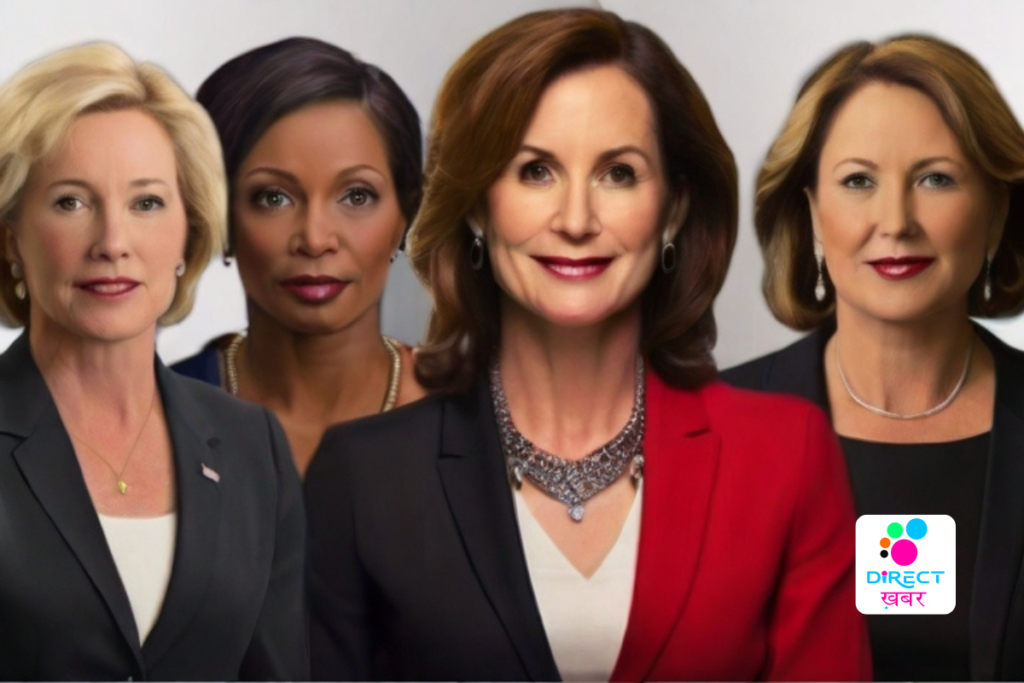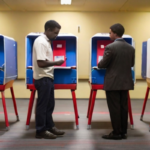Women in Politics: Overcoming Barriers to Leadership
Women’s participation in politics has historically been hindered by various barriers, ranging from cultural norms and societal expectations to institutional obstacles. Despite progress in recent years, gender disparities persist in political leadership roles worldwide. This essay explores the challenges faced by women in politics and examines strategies to overcome these barriers, ultimately promoting greater gender equality in governance.

Historical Context:
Throughout history, women have been marginalized from political spheres, relegated to subordinate roles or excluded altogether. Traditional gender roles and patriarchal structures have perpetuated this inequality, constraining women’s opportunities for political engagement and leadership. Despite suffrage movements and legislative reforms granting women the right to vote and hold office in many countries, deep-seated biases and systemic barriers continue to impede women’s progress in politics.
Barriers to Women’s Political Leadership:
- Cultural and Social Norms: Societal expectations often dictate gender roles, stereotyping women as caregivers and homemakers rather than leaders. Cultural norms may discourage women from pursuing political ambitions or entering male-dominated spheres of governance.
- Discrimination and Bias: Women in politics frequently encounter discrimination and bias based on their gender, facing scrutiny over their abilities, appearance, and personal lives in ways that men do not.
- Lack of Representation: The underrepresentation of women in political institutions perpetuates a cycle of marginalization, with fewer role models and mentors available to support aspiring female leaders.
- Institutional Obstacles: Political systems and structures may be inherently biased against women, with barriers such as limited access to campaign financing, party nomination processes favoring male candidates, and entrenched power dynamics that resist change.
- Work-Life Balance Challenges: Balancing political careers with familial responsibilities poses a significant challenge for many women, particularly in cultures where caregiving duties are disproportionately placed on women.

Strategies for Overcoming Barriers:
- Legislative Reforms: Implementing policies to promote gender equality in politics, such as quota systems, gender-sensitive electoral laws, and anti-discrimination measures, can help level the playing field for women candidates.
- Empowerment and Education: Investing in initiatives that empower women politically, including leadership training programs, mentorship schemes, and educational campaigns to challenge gender stereotypes and promote women’s participation in governance.
- Advocacy and Awareness: Raising public awareness about the importance of gender diversity in political decision-making and advocating for women’s rights can help generate momentum for change and hold institutions accountable for promoting gender equality.
- Supportive Networks: Building networks of support for women in politics, including women’s caucuses, advocacy groups, and professional associations, provides a platform for solidarity, collaboration, and collective action.
- Cultivating Inclusive Leadership: Fostering a culture of inclusivity and diversity within political parties and institutions, where women are valued for their unique perspectives and contributions, can help dismantle entrenched biases and create opportunities for women to thrive in leadership roles.
Case Studies:
- Rwanda: Through the implementation of gender quotas and proactive government policies, Rwanda has achieved one of the highest levels of female representation in parliament globally, demonstrating the effectiveness of legislative reforms in promoting women’s political participation.
- New Zealand: Prime Minister Jacinda Ardern’s leadership exemplifies inclusive and compassionate governance, challenging traditional notions of leadership and inspiring women around the world to pursue political leadership roles.
- Sweden: Sweden’s feminist foreign policy prioritizes gender equality and women’s rights in diplomatic efforts, highlighting the importance of integrating feminist perspectives into all aspects of governance and international relations.

Women’s participation in politics is essential for achieving gender equality and inclusive governance. By identifying and addressing the barriers that hinder women’s political leadership, we can create a more equitable and representative democracy. Through legislative reforms, empowerment initiatives, advocacy efforts, and inclusive leadership practices, we can build a future where women have equal opportunities to shape the political landscape and contribute to positive societal change.






